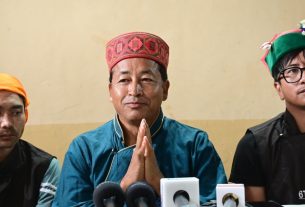A country’s gross domestic product (GDP), which measures total economic output, is central to how governments assess their economies. But this figure, when looked at in isolation, which is most often the case, incentivizes economic systems that value aggregate productivity, without reflecting environmental degradation, inequality or human rights.
A new 14-member high-level expert group, appointed by the United Nations secretary general, is working to change this. Following a commitment in the UN’s Pact for the Future, they have been mandated to develop measures of progress that complement or go beyond GDP as a metric, which they are expected to deliver to the UN General Assembly in 2026. This will then lead to a state-led process to adopt new economic indicators based on the group’s findings.
This week, to help shape and inform the direction of this new group, the Office of the High Commissioner for Human Rights and other UN agencies convened a meeting, co-sponsored by Chile, Honduras, Mexico, and Spain, to ensure that human rights are imbedded in these new metrics. They highlighted their transformative potential to reshape economies from ones that champion unchecked economic productivity to those that prioritize people and the planet.
Participants proposed including indicators that would help center human rights at the heart of the new metrics, including by measuring:
- Economic inequality: such as income and wealth distribution, and profits versus wages
- Public social spending: such as on healthcare, education, and social security
- Environment impact: reflecting the environmental and climate costs of economic activity, as well as the economic value of natural assets
- Gender equality: recognizing and valuing unpaid care work, predominantly performed by women
- Labour rights: for example, the discrepancy between minimum and living wage, unemployment rates, and working conditions
- Democratic control: public participation in economic decision-making
- Governance: the capacity and accountability of state institutions, which research has linked both to democracy and economic performance
- Extraterritorial impact: the extent to which economic policies have harmful impacts on other countries’ economies
As the Deputy High Commissioner for Human Rights Nada Al-Nashif noted in opening the conference, “‘Beyond GDP’ is not just about improving growth metrics—it’s about fundamentally rethinking our economic systems.” Measuring economic progress by taking into account what really matters for people can help build healthier and fairer human rights economies.



